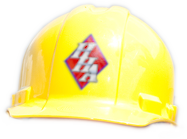Energy efficiency is more than a fad. These days, it seems as if everyone is asking you to “go green” or “reduce your carbon footprint” and with good reason. Less energy used in the home and workplace means less pollutants, less water usage, and--important to any consumer--less cost!
A sense of environmental responsibility coupled with an economic desire to save money have made energy efficiency a standard requirement of consumers and builders. It’s no wonder, when you consider that nearly half of a home’s energy costs go towards heating and cooling! Luckily, there are a few things that can help make sure that your HVAC system is running at its most efficient levels.
● Check your filter. Regular maintenance and clean-up are, of course, the best defense against energy waste. Check the filter monthly, and change it when it starts to look bad--a dirty filter leaves your system working harder, thus wasting energy.
● Yearly tune-ups. These are also incredibly useful, to check for filth in the unit and confirm the system’s continued quality.
● Check your ductwork. Improperly sealed ducts can be a major contributor to lost energy. Start with the areas that are most likely to contribute to energy loss: attics, basements, garages, and crawl spaces. Make sure that all seams and connections are properly sealed up and insulated.
● Program your thermostat. Installing and properly using a programmable thermostat can be very helpful. These offer the option of setting your heating/cooling system’s output to fit your needs and locale. They can alter temperature requirements depending on the time of day, thus reducing output during times when the building is less populated. Some automated systems can control heating/cooling levels for multiple floors at a time!
● Turn it off if you don’t need it. Some sources suggest that up to 85% of energy waste comes from equipment that has been left on or in stand-by mode. While it may not be a reasonable request in the case of certain businesses, turning off heating or cooling units when they are not necessary can help reduce costs significantly for most.
Summer is nearly upon us, and with its powerful heat and beating sun comes, as always, increased use of that favorite of modern technology: the air conditioner. Of course, with the air conditioner comes increased energy usage and, to boot, increased bills. However, by paying attention to some of these helpful hints, you can help save some of that energy from being wasted and keep your pocketbook a little fatter while you’re at it.



